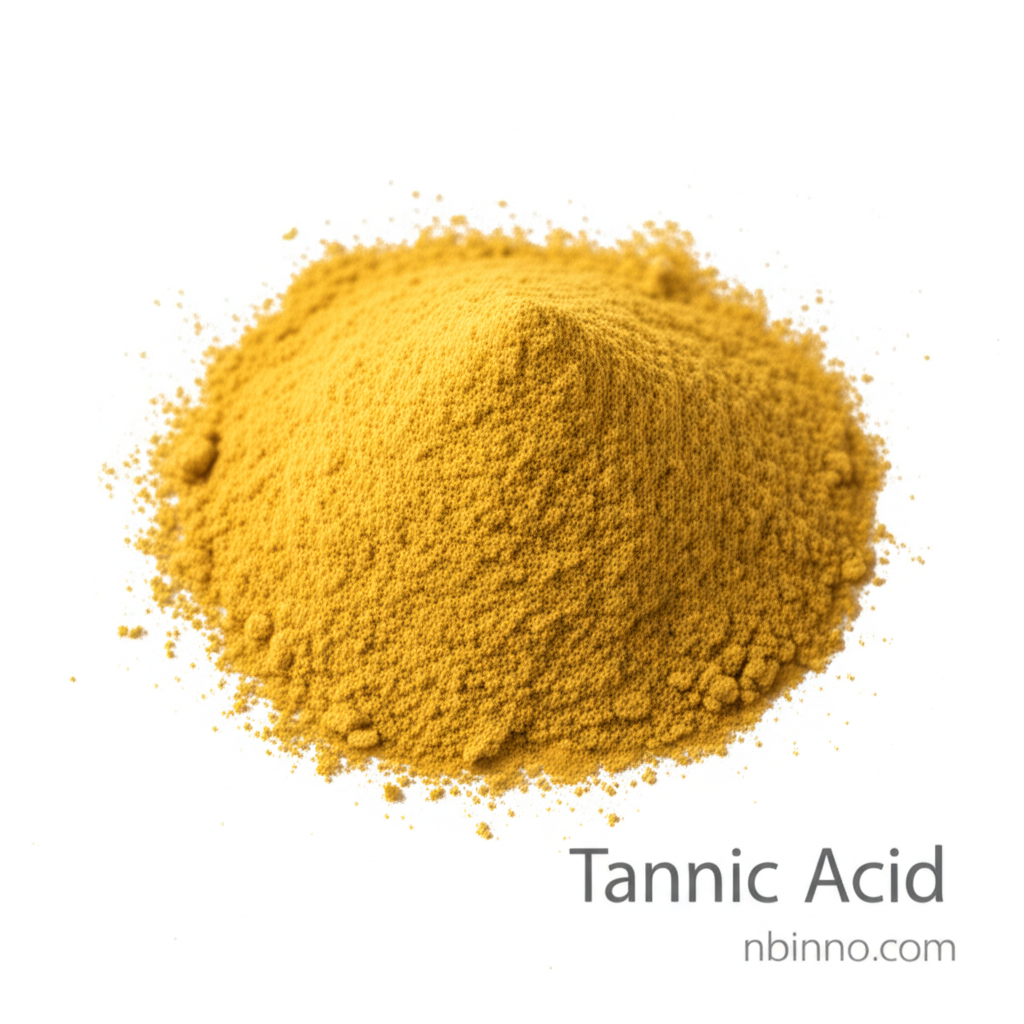Tannic Acid: A Versatile Polyphenol for Textiles, Food, & Industrial Applications
Unlock the multifaceted potential of Tannic Acid, a natural polyphenol widely used across textile, industrial, food, and pharmaceutical sectors for superior performance and safety.
Get a Quote & SampleProduct Core Value

Tannic Acid
Tannic Acid, a powerful polyphenol compound, offers exceptional functionality across multiple industries. Its natural origin and unique chemical structure make it an invaluable agent for improving product performance and stability, from enhancing textile durability to preserving industrial materials and beyond.
- Introduction to Tannic Acid for Textile Dyeing: As a primary dye fixing agent, Tannic Acid ensures vibrant, long-lasting colors on cellulose fibers like cotton and linen.
- Tannic Acid in Corrosion Inhibition: It forms stable compounds with iron, acting as an effective corrosion passivator for ferrous metals and surfaces.
- Exploring Tannic Acid Food Additive Uses: Recognized as safe by the FDA, Tannic Acid enhances flavor and acts as a clarifying agent in various food and beverage products.
- The Versatility of Polyphenol Compounds: Tannic Acid, a prime example of beneficial polyphenol compounds, is derived from natural sources, offering a sustainable chemical solution.
Product Brings Unique Advantages
Enhanced Color Fastness
Tannic Acid dramatically improves wash fastness properties of acid dyed polyamide and other fibers, ensuring colors remain brilliant and resist fading even after repeated washes. This is critical for high-end textiles and swimwear where color retention is paramount, leveraging its role as a key dye fixing agent.
Superior Material Preservation
Utilized as a potent corrosion passivator, Tannic Acid reacts with rust on ferrous metals, forming a protective layer that inhibits further decay. This makes it an essential component in industrial corrosion control and metal preservation strategies.
Broad Spectrum Application & Safety
Its classification as a natural food ingredient and recognition by regulatory bodies like the FDA for food use underscores its safety profile. Beyond food, its application extends to leather tanning and pharmaceutical applications, showcasing its remarkable versatility.
Key Applications
Textile Dyeing and Finishing
Tannic Acid is crucial for improving color fastness and preventing dye bleeding in fabrics, especially for cellulose and polyamide fibers. Manufacturers seeking reliable textile dyeing agents find it indispensable.
Industrial Corrosion Protection
As a highly effective corrosion inhibitor, it's used to passivate iron-based objects, preventing rust and extending the lifespan of metal structures and products. Consider using tannic acid for superior metal conservation.
Food and Beverage Processing
Recognized as a safe food additive, it clarifies beverages like wine and beer, stabilizes colors, and can enhance flavor profiles. Find food grade tannic acid from trusted suppliers for quality assurance.
Leather Tanning and Ink Production
Historically and presently, Tannic Acid is fundamental for tanning hides, converting raw skins into durable leather. It also plays a key role in manufacturing inks due to its ability to form stable complexes.
